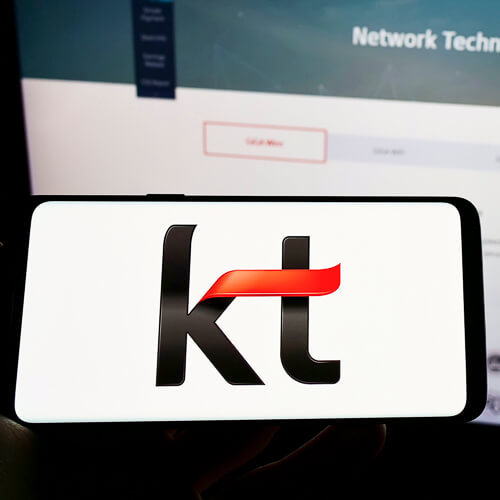KT Corp has copped a $6.3 million fine from the SEC for running a slush fund and paying bribes – the latest in a series of brushes with the law.

KT Corp has copped a $6.3 million fine from the SEC for running a slush fund and paying bribes – the latest in a series of brushes with the law.
But perhaps this time, its first encounter with the SEC, may force a culture change. The operator has promised to change its internal practices and to report any further corrupt behavior.
The SEC said KT had engaged in "multiple schemes to make improper payments" to South Korean and Vietnamese officials, and lacked sufficient internal accounting controls over donations and third-party payments.
Figure 1:  The $6.3 million fine from the SEC for running a slush fund and paying bribes is only the latest in a series of brushes with the law.
The $6.3 million fine from the SEC for running a slush fund and paying bribes is only the latest in a series of brushes with the law.
(Source: Timon Schneider/Alamy Stock Photo)
"As a result, KT Corp. employees, including high-level executives, were able to generate slush funds that were used for gifts and illegal political contributions to government officials in Korea who had influence over KT Corp’s business."
Charles Cain, head of enforcement in the Foreign Corrupt Practices Act (FCPA) unit, said for nearly a decade KT had failed to implement adequate internal accounting controls or anti-corruption procedures.
Neither confirm nor deny
The telco, whose ADRs are listed on the NYSE, consented to the order "without admitting or denying" that its internal accounting controls violated any laws, according to the SEC.
It has not made any public response to the order and did not respond to Light Reading inquiries.
However, it has committed to introduce new controls and report back to the SEC every six months, according to the SEC order.
CEO Ku Hyeon-mo has had his own legal issues in relation to illicit payments.
Ku and nine other KT executives were fined 46 million won for their role in a slush fund scheme that made payments to lawmakers. Another four execs face further court action, Korea Herald has reported.
But based on KT's own experience, and the established cycle of convictions and light punishment of Korean corporate leaders, Ku may well see it as a mere occupational hazard.
Lee Suk-chae, KT chairman from 2009-2013 and a former ICT Minister, received a one-year suspended sentence for bribery and hiring staff connected to senior political figures.
In August 2021, Samsung Electronics boss Lee Jae-Yong was released from prison after serving just over half of a two-and-a-half-year sentence for embezzling 8.7 billion won, which was used to pay bribes to former President Park Geun-hye.
Lee's father, long-term Samsung chairman Lee Kun-hee, received two presidential pardons, once after a bribery conviction and another after being found guilty of embezzlement and tax evasion.
SK Chairman Chey Tae-won, chairman of SK Telecom's parent, SK Group, did a four-year stretch before he was pardoned in 2015.
Meanwhile, in China
China's telcos also have a recidivism problem, but without the generous pardons.
Li Guohua, a former China Unicom president and deputy party secretary, is under investigation for "serious violation of party discipline" – communist party-speak for corruption, media reported last Friday.
In the highly likely event that he is convicted, he can expect similar treatment to previous high-flying telco execs caught taking bribes.
Interested in Asia? Check out our dedicated content channel here on
Light Reading.
Chang Xiaobing, China Unicom's chairman for 11 years, is serving a six-year jail term for accepting 3.6 million yuan in payments, while Zhang Chunjiang, a former China Mobile vice-chairman, received a suspended death sentence in 2011 for receiving $1.15 million,
Another China Mobile executive, Lu Xiangdong, was sentenced to life imprisonment in 2013 for accepting 25 million yuan in bribes.
Related posts:
— Robert Clark, contributing editor, special to Light Reading
Read more about:
AsiaAbout the Author(s)
You May Also Like











